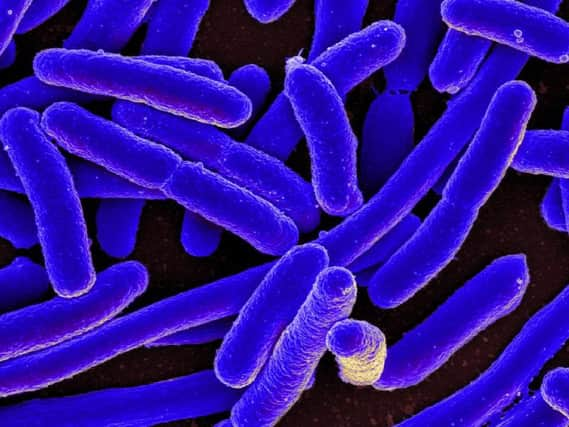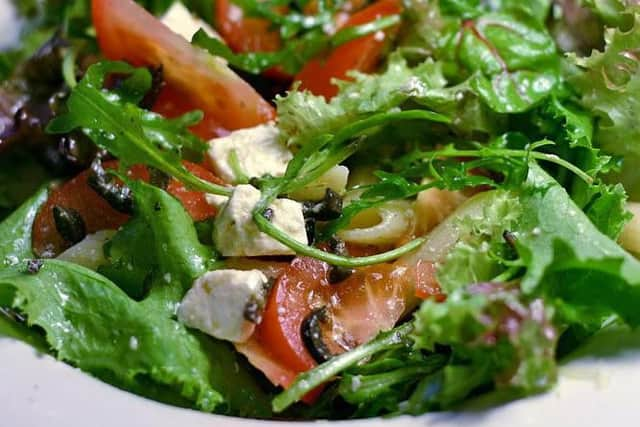SALAD BUG: Have you been washing your rocket?


Public Health England says it is still working to establish the exact cause but many of those struck down by the E.coli O157 bug had eaten pre-packed salad, including rocket leaves.
The infection can cause bloody diarrhoea and abdominal pain and worryingly symptoms often don't start to show until three or four after they have been infected, and even up to 14 days after - lasting a fortnight.
Advertisement
Hide AdAdvertisement
Hide AdSome people will have no symptoms, but others can develop serious complications and will need medical help.


In their Latest update, the government department said: "Public Health England is continuing to investigate an outbreak of E.coli O157, which appears to be associated with eating mixed salad leaves.
"Following the last update on 5 July, PHE can now confirm that 151 cases of this strain of E. coli have been identified (figure correct as at 13 July 2016). This is 144 in England, 6 in Wales and 1 in Scotland, with the South West of England particularly affected. 62 of the cases are known to have received hospital care and sadly, two of the individuals with E.coli O157 infection have died."
Dr Isabel Oliver, director of PHE’s field epidemiology service, said: "PHE has been working to establish the cause of the outbreak and has identified that several of the affected individuals ate mixed salad leaves including rocket leaves prior to becoming unwell.
Advertisement
Hide AdAdvertisement
Hide AdCurrently, the source of the outbreak is not confirmed and remains under investigation; we are not ruling out other food items as a potential source.


"PHE is using various approaches including whole genome sequencing (WGS) technologies to test samples from those affected. WGStechnologies are at the forefront of improving the diagnosis of infectious diseases and this testing has indicated that the strain involved is likely to be an imported strain, possibly from the Mediterranean area.
PHE is also working closely with the Food Standards Agency to trace, sample and test salad products grown in the UK and other parts of Europe. All food sample results to date have been negative for E.coli O157, said the health department, but it’s important to be aware that where food has been contaminated with E.coli O157, it is not always possible to identify the bacteria on food testing.
As an additional precautionary measure, same wholesalers have been advised to cease importing some rocket leaves for their mixed salad products, pending further investigations.
Hygiene and preparation advice:
Advertisement
Hide AdAdvertisement
Hide Ad- Wash hands thoroughly after using the toilet, before and after handling food, and after handling animals
- Remove any loose soil before storing vegetables and salads
- Wash all vegetables and fruits that will be eaten raw
- Store and prepare raw meat and unwashed vegetables away from ready-to-eat foods
- Do not prepare raw vegetables with utensils that have also been used for raw meat
- Cook all minced meat products, such as burgers and meatballs, thoroughly
- People who have been ill should not prepare food for others for at least 48 hours after they have recovered